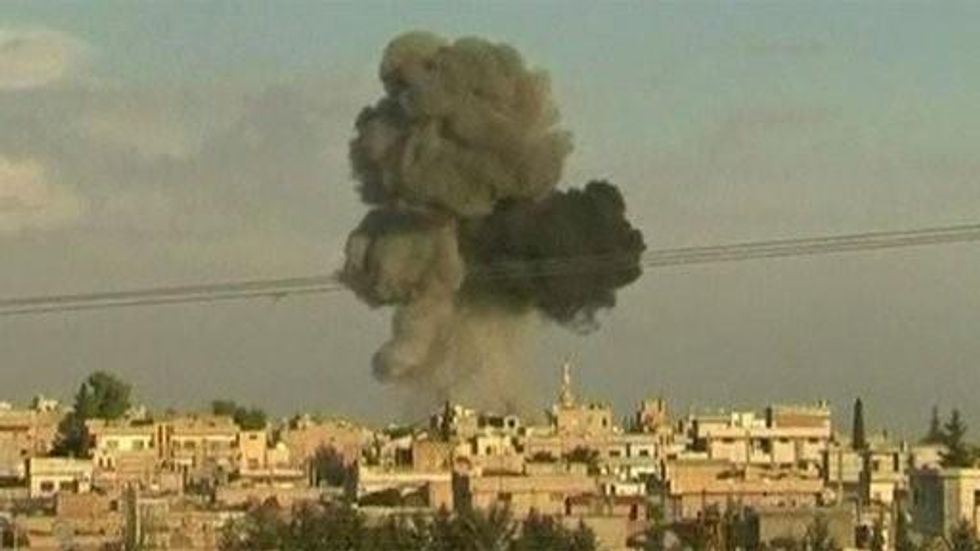Is history repeating itself? As I noted earlier this week here, The New York Times, as it did in the run-up to the 2003 Iraq invasion, seems to be promoting (if a little less strenuously) some kind of dramatic U.S. intervention in Syria, based on WMDs. Once again we've seen overheated front-page news stories, based on slim evidence, and columns by Thomas Friedman, Bill Keller and others. And, again as in 2003, the newspaper's editorials express caution.
Also in a re-play, reporters for McClatchy's D.C. bureau are expressing sensible skepticism (back in the day the outfit was still owned by Knight Ridder) about evidence of WMDs, in this case, the Syrian regime's alleged use of chemical agents against the rebels.
One of the reporters in those much-hailed, in retrospect, Iraq stories is still at it on Syria: Jonathan S. Landay. His Knight Ridder editor Clark Hoyt moved on (including a gig as public editor at The Times), and so has one of his chief colleagues, John Walcott. Warren Strobel remains, as does the excellent Hannah Allam, former Middle East bureau chief and now based in D.C. Landay highlighted caution about new evidence at least as far back as April 26.
When I was editing Editor & Publisher we were one of the few mainstream news outlets to highlight the Knight Ridder team (for the full story see my book, So Wrong for So Long: How the Press, the Pundits and the President Failed on Iraq). Later I appeared on Bill Moyers' show with Walcott and Landay. Basically, they got he Iraq WMD story right because, unlike virtually every other major media outlet, they relied on experts outside the usual old-boy network of Pentagon, CIA, military and congressional sources.
I hope to chat with Landay and Allam and maybe others in the days ahead, but for now, consider yesterday's McClatchy story by those two plus Matthew Schofield. It is quite at odds with the tone and substance of much of The New York Times coverage. It's almost a response to it.
Despite rising calls for some kind of increased U.S. military involvement in Syria, scant evidence exists, at least in public, that Syria's vicious civil war has breached President Barack Obama's "red line" on the use of chemical weapons. It opens:
In the 10 days since the Obama administration notified Congress that it suspected, with "varying degrees of confidence," that chemical weapons had been employed in Syria, no concrete proof has emerged, and some headline-grabbing claims have been discredited or contested. Officials worldwide now admit that no allegations rise to the level of certainty.
Yet political rhetoric on Syria has overtaken actual evidence in a high-stakes Washington debate that's increasing pressure on Obama to lend more military support to the rebels fighting to topple Syrian President Bashar Assad.
On Monday, Senate Foreign Relations Committee Chairman Robert Menendez, D-N.J., alluded to chemical weapons as he proposed a measure to provide limited arms to the rebels, asserting that Assad's regime "has crossed a red line that forces us to consider all options."
British, French and Israeli experts who expressed more confidence in their assessment than the Obama administration had in its judgment have in recent days qualified their positions, said Greg Thielmann, a former State Department intelligence analyst now with the Arms Control Associatin, a private organization that provides analysis of weapons issues. "That should make everyone suspicious," he said. "And the reality may be lot more complicated." Thielmann added, "Do you really risk going to war without knowing who has used what and in what circumstances?"
Existing evidence casts more doubt on claims of chemical weapons use than it does to help build a case that one or both sides of the conflict have employed them.
